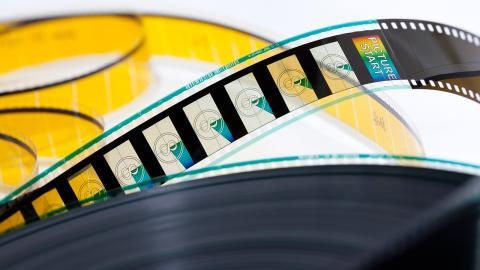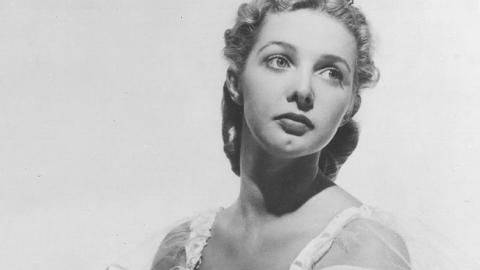
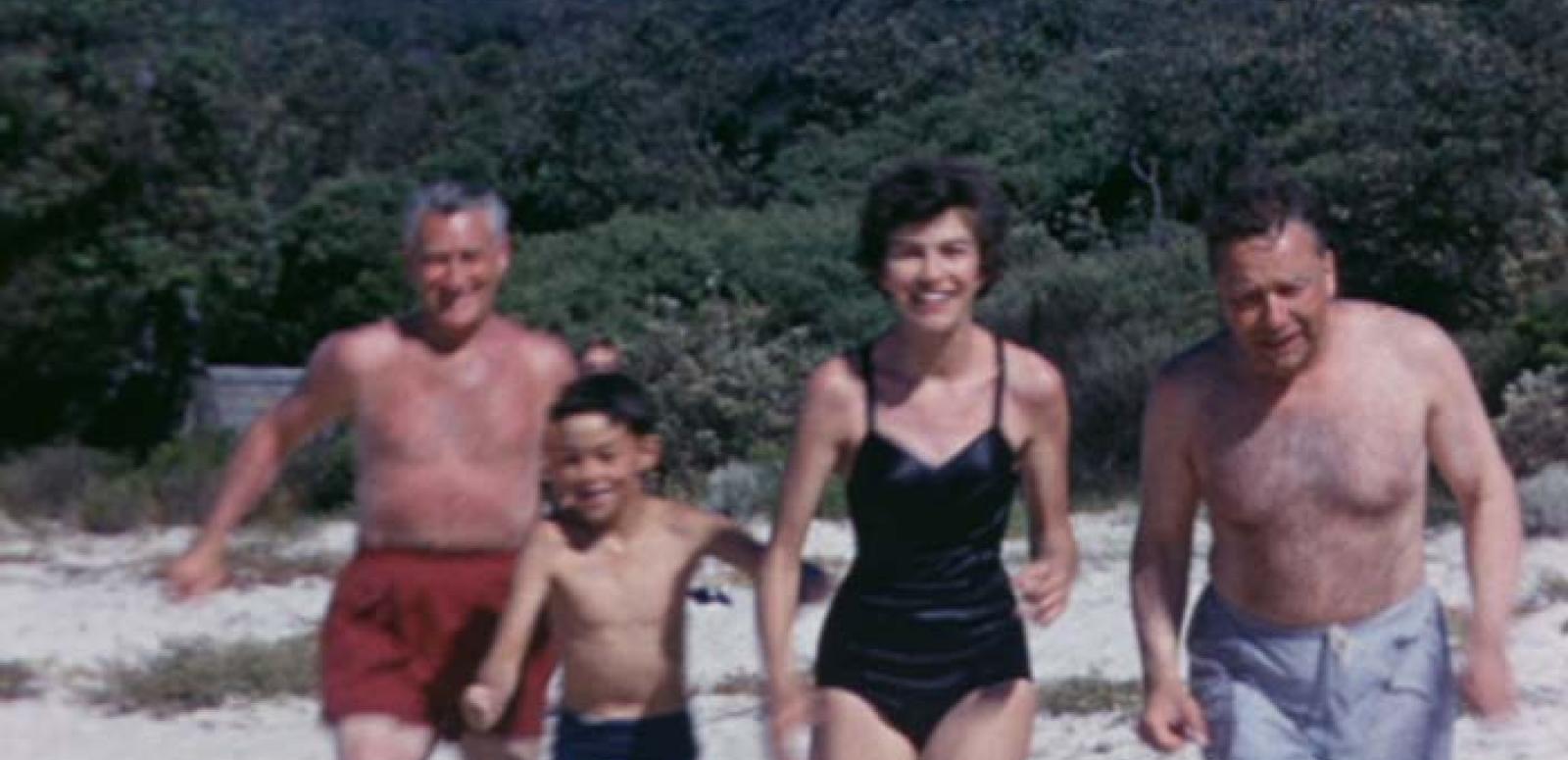
Ernest Singer home movies
Ernest Singer home movies
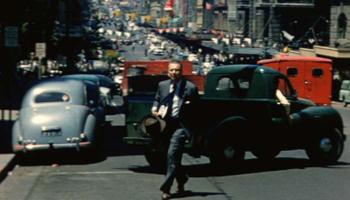
In 2006, a collection of approximately 20 assorted home movies, filmed on 16mm and Super8 by Melbourne resident Ernest Singer (1905-1981), was donated to the NFSA by his children, Joan Dwyer and Peter Singer. NFSA staff selected, catalogued and nominated the films for further preservation work. These films were projected for the very first time on the big screen at the Astor Theatre in Melbourne on 25 May 2014, as part of the 2014 St Kilda Film Festival.
The quality and ambition of these films prompts questions about the man behind the camera. Who was this previously unknown amateur Melbourne filmmaker with the European eye, whose films capture a uniquely new-migrant take on the local customs of 1950s Australia?
Born in Vienna in 1905 of Jewish descent, Ernest Singer initially studied at the Handelsakademie (Vienna Business School) with a likely career path into his family’s lucrative handbag and umbrella manufacturing business. Eschewing these expectations, Singer moved into coffee importation, working as a coffee buyer for the Dutch company Daarnhouwer. However, with Nazi persecution commencing with the annexation of Austria into greater Germany, Ernest and his wife Cora fled their homeland in 1938.
A chance encounter with an Australian tourist several years earlier had given the Singers the idea of a future life in the Antipodes. Relocating to Melbourne, Singer wasted no time in setting up his own coffee importation business, ‘E Singer Pink and Co’. With a Flinders Lane office located in the heart of Melbourne’s busy central business district, Singer became one of Australia’s pioneer green bean coffee importers, at a time when most of the locals were predominantly British-influenced tea drinkers.
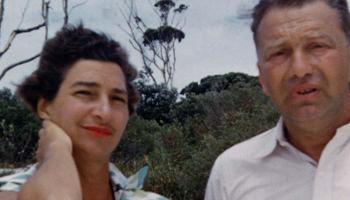
The Singers raised two Australian-born children – Joan (b. 1940), a highly respected lawyer, and Peter (b.1946), the acclaimed philosopher, ethicist and academic of world renown. In his spare time, Ernest Singer was a keen amateur cineaste, quickly developing a passion for his filmmaking hobby. Commencing with a standard infant home movie (c.1940) of baby Joan with her proud parents, Singer began producing a collection of thoughtful, meticulously constructed travelogues, often featuring tightly scripted narration, lensed both here and abroad, predominantly on his favoured 16mm colour film stock.
By 1955, Singer had become a member of the then-vibrant Victorian Amateur Cine Society (VACS). Submission of several of his films into VACS competitions resulted in him winning a number of trophies along the way. The apex of his film hobby was the entry of Confidentially Yours – his sole attempt at a dramatised short – into the national finals of the Australian Amateur Cine Societies 2nd Annual Film Awards in 1957. The film’s relatively poor placing in the competition (equal 31st) appears to have halted Singer’s enthusiasm for further public examination of his works. Though he continued to produce further films – including perhaps his finest, The Festive Season (1958), along with insightful travelogues on trips abroad to Papua New Guinea, Europe and the USA – Singer’s filmmaking interest was now shared only with family and friends.
The NFSA is screening a choice selection of six of Ernest Singer’s 16mm films from the 1950s in partnership with the St Kilda Film Festival.
Let’s Visit Yallourn (c.1953) 2 mins, B&W, Silent (with live musical accompaniment)
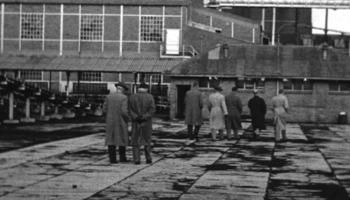
One of Ernest’s earliest film projects, this brief black-and-white film features the Singer family on a day trip to visit the coal-producing Victorian township of Yallourn, most likely during an ‘open day’ in 1953. At this point, Singer was still learning how to construct a narrative, this film being little more than an experiment to practise his editing and camera framing skills.
Bad Business In Brisbane (1954) – 18 mins, Colour, Silent (with live musical accompaniment)
The beginning of Singer’s use of 16mm Kodachrome colour film stock, this inventive short, documenting a business trip to Queensland to meet with several coffee growers, is a well filmed and edited travelogue of the people and places he encountered. Complete with Singer’s trademark sense of humour, its ending features one of Singer’s recurring narrative themes – infidelity!
Quiet Weekend (1955) – 19mins, Colour, Silent (with live musical accompaniment)
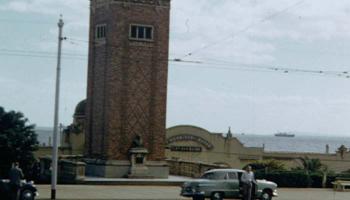
Ernest’s children Peter and Joan are the stars of this delightful vignette as they embark upon their own unplanned adventure around Melbourne. Hawthorn, Kew, and St Kilda all feature while the frantic parents despair at their children’s disappearance. Shots of a crowded St Kilda Beach Surf Lifesaving carnival are a highlight, as is the quiet impression of the innocence of 1950s middle-class Melbourne suburban life.
On Australia’s Rooftops (1956) – 15 mins, Colour, Sound with narration
The first of the films in this program to feature both music and narration, the latter provided on this occasion by Ernest’s daughter Joan. A filmed journey to the snowfields of Charlotte Pass in Mount Kosciuszko National Park complete with a thoughtful script, tight editing and strong visual aesthetic, this family travelogue compares favourably to similar professional productions of the day.
Watch On Australia’s Rooftops on the NFSA Films YouTube channel
Confidentially Yours (1957) – 21 mins, Colour, Sound with narration.
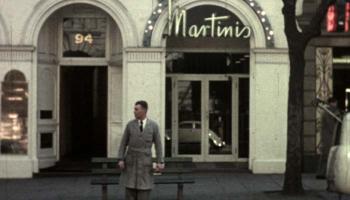
Perhaps Singer’s most ambitious film, this sparsely narrated drama features a voice-over by Joan and acting performances provided predominantly by friends from the thriving local Jewish community. A story of intrigue and infidelity filmed in and around Melbourne, you can glimpse the beginnings of the city’s now ubiquitous café culture. Look out for the film’s final sequence in which an unusually deserted Queen Street looking north towards the Queen Victoria Market reveals just how quiet weekends in central Melbourne were during the 1950s.
Watch Confidentially Yours on the NFSA Films YouTube channel
The Festive Season (1958) – 16 mins, Colour, Sound with narration
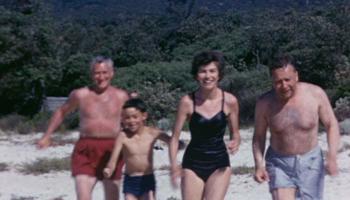
Arguably the filmmaker’s most acutely perceptive and reflective production, Singer’s wry Yuletide tale involves too much drinking, several dream sequences and some telling observations on life in his new homeland. Narrated by Ernest himself, this film’s somewhat melancholic tone is perhaps indicative of a common migrant feeling of dislocation. Removed from the cultured existence of his Viennese past, that but for the intervention of the Anschluss might have delivered his family a very different set of circumstances, Ernest Singer’s film ruminates on his then 20-year existence as a new Australian.
Today, the Ernest Singer Collection of 16mm and Super 8mm films, photographed between 1940-1981, is preserved at the NFSA.
Film screenings and all images are copyright and courtesy of Joan Dwyer and Peter Singer.
The National Film and Sound Archive of Australia acknowledges Australia’s Aboriginal and Torres Strait Islander peoples as the Traditional Custodians of the land on which we work and live and gives respect to their Elders both past and present.

